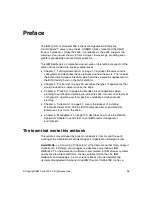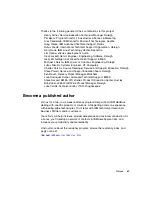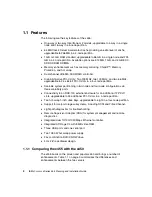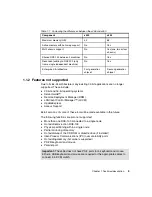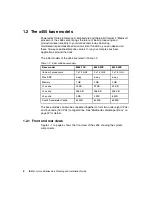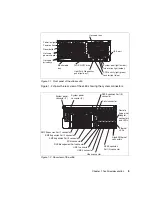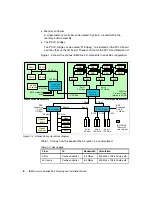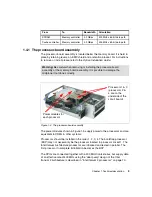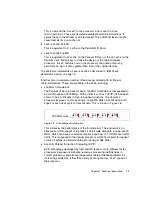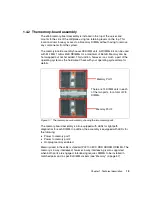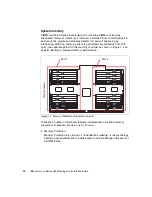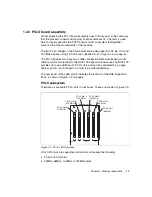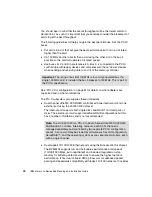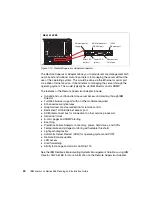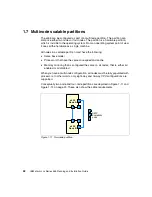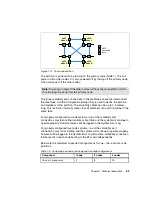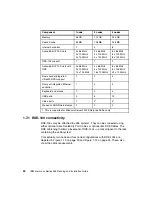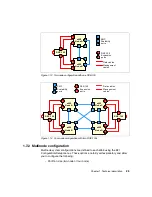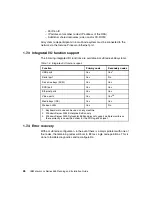
Chapter 1. Technical description
11
This is new and the “closest” to the processor, and is used to store
micro-operations. These are decoded executable machine instructions. It
serves these to the processor at rated speed. This additional level of cache
saves decode time on cache hits.
Level 2 cache, 256 KB
This is equivalent to L1 cache on the Pentium® III Xeon.
Level 3 cache 3–6 MB
This is equivalent to L2 cache on the Pentium III Xeon or the L3 cache on the
Pentium Xeon MP processor. Unlike the design of the original Itanium
processor, this L3 cache is now on the processor die, greatly improving
performance, up to 2 times greater than that of the original Itanium.
The x455 also implements a Level 4 cache as described in “IBM XceL4
Accelerator Cache” on page 12.
Intel has also introduced a number of features associated with its Itanium
micro-architecture. These are available in the x455, including:
400 MHz frontside bus
The Pentium III Xeon processor had a 100 MHz frontside bus that equated to
a burst throughput of 800 MBps. With protocols such as TCP/IP, this had been
shown to be a bottleneck in high-throughput situations. The Itanium 2
processor improves on this by using a single 200 MHz clock but using both
edges of each clock cycle to transmit data. This is shown in Figure 1-6.
Figure 1-6 Dual-pumped frontside bus
This increases the performance of the frontside bus. The end result is an
effective burst throughput of 6.4 GBps (128-bit wide data path running at 400
MHz), which can have a substantial impact, especially on TCP/IP-based LAN
traffic. This is opposed to the Itanium processor, which had a burst throughput
of only 2.1 GBps (64-bit wide data path running at 266 MHz).
Explicitly Parallel Instruction Computing (EPIC)
EPIC technology, developed by Intel and HP, leads to more efficient, faster
processors because it eliminates numerous processing inefficiencies in
current processors and attacks the perennial data bottleneck problems by
increasing parallelism, rather than simply boosting the raw “clock” speed of
the processor.
200 MHz clock
Summary of Contents for 88553RX
Page 2: ......
Page 214: ...200 IBM Eserver xSeries 455 Planning and Installation Guide Figure 5 14 Connect to the x455...
Page 228: ...214 IBM Eserver xSeries 455 Planning and Installation Guide...
Page 229: ...IBM Eserver xSeries 455 Planning and Installation Guide...
Page 230: ......
Page 231: ......

